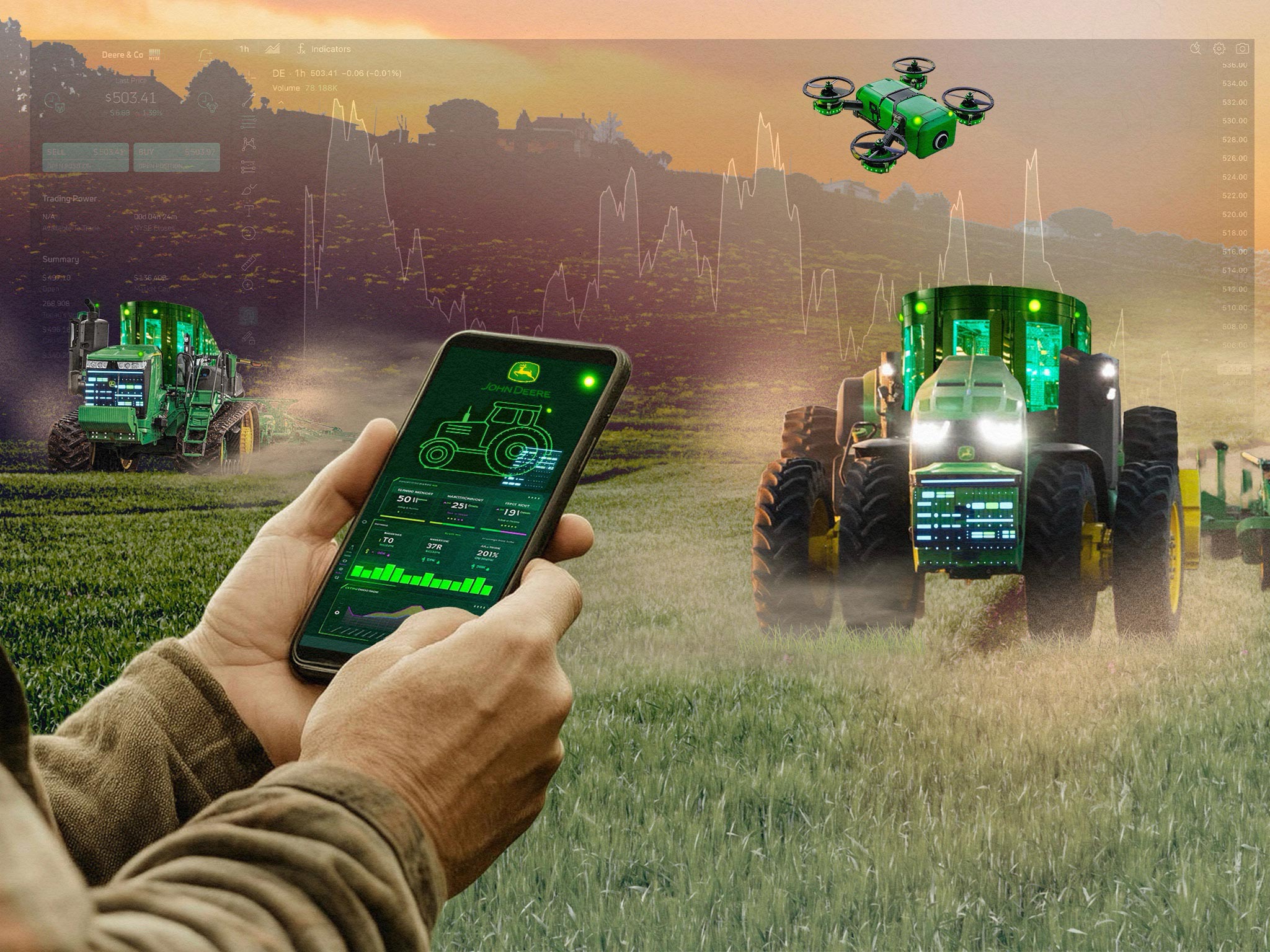Farming equipment manufacturer Deere (NYSE: DE) began experimenting with using artificial intelligence on farms when it launched a self-driving tractor that farmers could operate by pressing a few buttons on their smartphones three years ago.
The company now features more advanced technology using cameras and sensors that can calculate depth perception better so that farmers can improve how they plant seeds or till the land better and faster. The result for the farmers is that the amount of crops rises and improves during harvest season. The AI technology works well in fields and takes the guesswork out of where pesticides, fertilizers and other products need to be sprayed.
The yield is what farmers care about because a larger one per acre of land means they can make more money. If farmers can improve the amount of soybeans or grapes they grow, it would be a boost to them and the economy.
Investors are also feeling more confidence in the company as shares have risen 31% during the past year and 183% the past five years.
Deere charges farmers to subscribe to its AI applications in addition to selling them equipment. The company’s plan is to help farmers use fewer employees, land and chemicals while boosting their crop yield. While some of the higher-producing farms generate 200 bushels per acre, the top ones generate over 600 bushels, Justin Rose, President of Lifecycle Solutions, Supply Management, and Customer Success at Deere, told Open AI.
The company’s tech provides more precision for farmers so that a lower amount of herbicides are used. Deere’s AI takes advantage of 36 cameras and advanced machine learning to identify and spray only the weeds, he said. The “See and Spray” tech also moves quickly at speeds of 12-15 miles per hour or the distance of three football fields per minute. The result is that farmers use 70% less in chemicals while improving efficiency on their farms.
The dealers who sell Deere also are seeing the benefits of AI since repairs to farm equipment is often time-consuming. Instead of spending hours reading through manuals and trying to repair the wrong parts, AI-powered tools can analyze the data much faster and provide a potential solution that is more precise and can even name the parts needed.
Deere’s challenge is convincing farmers that their tools are necessary and will save them not only time such as recognizing plants from weeds, but also money down the road.
The company’s strategy is to offer the AI tech via subscriptions and renewable licenses that will lower “upfront costs and ensuring customers pay only when they use it—delivering value before full commitment,” Rose said.
Generating revenue via subscription-based AI tools is likely to occur much faster since Deere’s self-driving tractor that can till fields or turn over dirt is estimated to cost at least $500,000. Purchasing autonomous equipment might be an option that only larger farms can afford.
Over the years Deere has acquired companies to improve its technology such as the purchase of
Bear Flag Robotics, a Silicon Valley-based ag tech startup for $250 million, to use ultrasonic, lidar, radar and other technologies, for its equipment.
In 2023, Deere purchased Smart Apply, an Indianapolis-based precision spraying equipment company, which uses lidar so that a lower amount of chemicals and water are used.
In May, the company bought Sentera, a St. Paul, Minnesota-based provider of remote imagery solutions for agriculture that will give farmers the ability to look at the health of their crops via drones taking high-resolution images to generate a weed map.
Deere can also count on its global expansion in places like Brazil, a country that is more hospitable for farming since it has two growing seasons compared to only one major one in the U.S. and Europe.
In the past 15 years, the company’s market share grew by 100% – Deere’s Brazilian dealership network has over 275 stores, according to Raymond James analyst Tim Thein who predicts that growth will produce a “bigger revenue/earnings contributor to DE within the next few years,” in a research report.
Over the years, the company has also diversified into other industries that investors may not be as familiar with such as building roads, construction turf care and forestry. Its customers are not just farmers or ranches, but also construction businesses and forestry companies, plus consumers.
Deere’s future looks promising as long as Mother Nature cooperates.




Comments